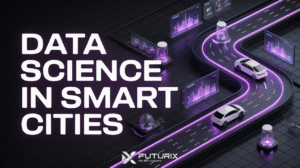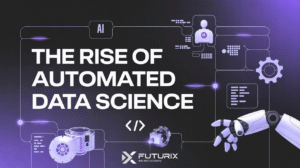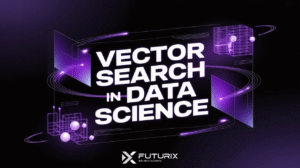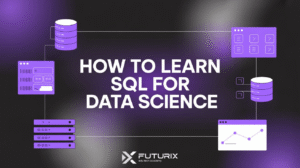With the demand for careers in data science on the rise, people are searching for essential skills and tools to stand out in this competitive field. With unpredictable data growth and its increasing importance in the industry, there is a high demand for skilled experts who are more than just passionate about numbers. So, what exactly does it take to stand out in this competitive field? Of course, it’s going along with the updates. Other than that, there are skills and techniques you need to focus on beforehand. Let’s see how to build essential skills and tools for data scientists.
What are the core technical skills of a data scientist?
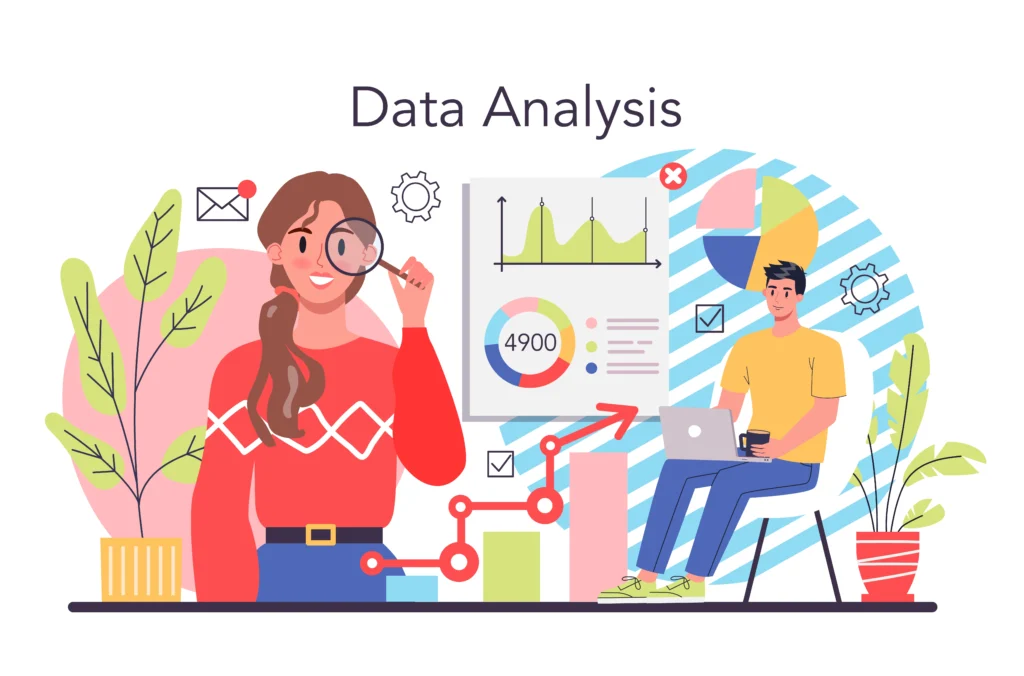
Mastering Programming Languages (Python/R)
Python or R programming are the root strengths of modern data science. Python’s flexibility and libraries like pandas, NumPy, and scikit-learn make it ideal for machine learning and data manipulation. On the other hand, R is well-suited for statistical computing and graphics, known for its capabilities in statistics and visualisation, with commonly used libraries like dplyr, ggplot2, and caret.
Techniques for Data Visualisation
Essential skills and tools for data scientists include the ability to visualise data using various techniques. They need to be pros at reading and analysing data, creating interactive dashboards, and geospatial visualisation. In addition, they must be familiar with basic tools such as Matplotlib, Seaborn, Plotly, and mastering tools like Power BI and Tableau is crucial for building impactful dashboards.
Algorithms for Machine Learning
Machine learning algorithms are important as they help analyse, decode, and utilise data. As a beginner try to focus on,
- Supervised learning: regression, classification,
- Unsupervised learning: clustering, dimensionality reduction,
- Reinforcement learning: Policy optimisation, Reward-based learning.
Advanced Machine Learning – Key Concepts
- Deep Learning – Deep Learning enables computers to learn from large datasets, similar to how human brains learn, and is effective for tasks like image and speech recognition.
- Reinforcement and transfer Learning – Reinforcement Learning teaches computers through trial and error, while Transfer Learning allows models to apply knowledge from one task to another, saving time and effort.
- Generative Models – Generative Models create new content by learning from existing data, useful for generating data, simulating scenarios, and finding creative solutions.
- Attention Mechanisms -Attention Mechanisms help machines focus on key information, improving language models and context understanding in AI applications.
ETL Skills
ETL (Extract, Transform, Load) comes under essential skills and tools for data scientists and this skills are crucial because:
- Raw data often needs cleaning and transformation before analysis can begin.
- You’ll often need to combine data from multiple sources.
- Clean, consistent data is essential for accurate analysis and modeling.
- Most real-world projects require data preparation before analysis can start.
How These Skills Make You a Better Data Scientist
- ETL skills ensure your analyses start with clean, reliable data
- Better data quality leads to more accurate models and insights
- You can spot and fix data issues before they affect your results
Data Pipeline Knowledge
Understanding data pipelines is crucial because:
- Most companies need automated, repeatable data processes
- One-off analyses aren’t scalable for real business needs
- You’ll need to make your analyses reproducible and automated
- Stakeholders expect regular updates to dashboards and reports
How These Skills Make You a Better Data Scientist
- Pipeline knowledge lets you automate repetitive tasks
- You can focus on analysis instead of manual data preparation
- Your work becomes more reproducible and reliable
Big Data Framework Experience
Familiarity with big data frameworks matters because:
- Modern datasets are often too large for traditional tools
- Companies are collecting more data than ever before
- Many machine learning models require processing massive amounts of data
- Real-world applications often involve streaming or real-time data
How These Skills Make You a Better Data Scientist
- Big data skills let you tackle larger, more complex problems
- You can work with real-world datasets, not just sample data
- Your solutions can grow with the company’s needs
Statistics and Probability in Data Analysis
As an aspiring data scientist, who is focusing on building essential skills and tool sets, you should be able to upskill your statistical and probability knowledge, which is required for,
- Hypothesis testing,
- Experimental design,
- Bayesian inference.
Technical skills are required to tackle challenges in any field. Essential skills and tools for data scientists include mastering programming languages like Python and R, data visualization, and proficiency with machine learning algorithms.Mastering these skills means sorting out issues and presenting yourself as a professional at any level.
What are the soft skills required for a data scientist?
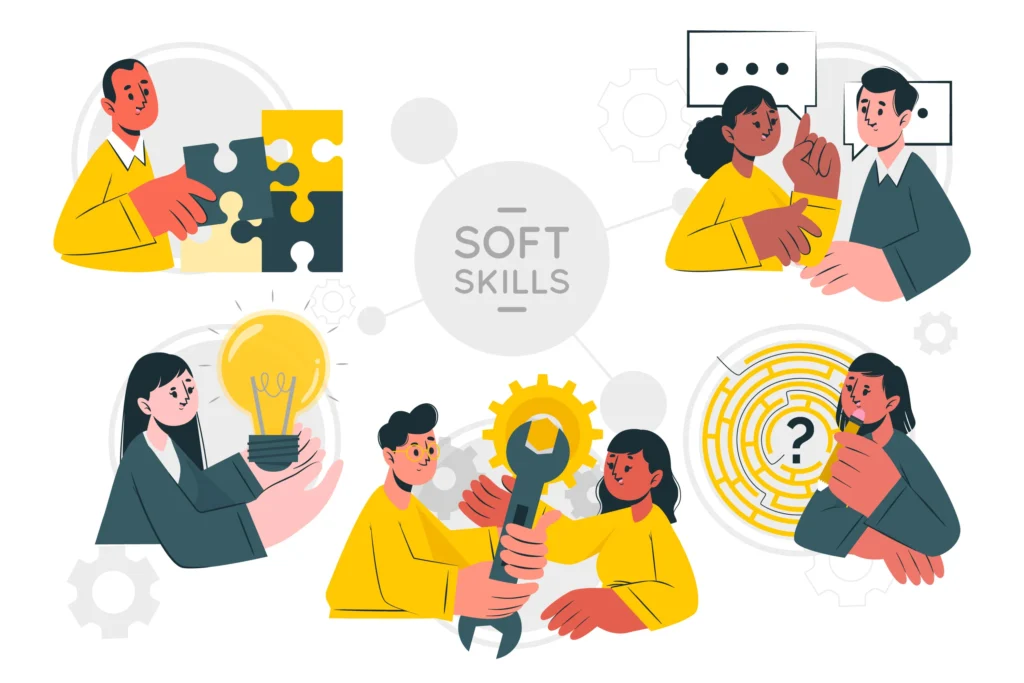
Now that we have explored some technical terms, let’s discuss the essential soft skills for data scientists. For someone to excel in their profession, technical knowledge alone is not sufficient. They should also have soft skills that complement it. The combination of these two makes a good professional. Let me share some of the skills with you.
Problem solving and Critical Thinking
To succeed in data science, technical expertise alone isn’t enough. Develop these vital soft skills to complement your technical knowledge:
Top Soft Skills:
1. Problem-Solving & Critical Thinking: Break down complex data problems, apply statistical methods, and find creative solutions.
2. Continuous Learning: Stay updated with industry trends, tools, and techniques to remain competitive.
3. Collaborative Mindset: Work effectively with diverse teams, listen actively, and explain technical concepts simply.
4. Effective Communication: Craft clear reports, create intuitive visualizations, and present findings to both technical and non-technical audiences.
5. Presentation Skills:
- Clear communication
- Visual aids
- Storytelling
- Structure
- Practice
- Audience awareness
Why Soft Skills Matter:
- Enhance problem-solving capabilities
- Foster teamwork and collaboration
- Drive business value through effective communication
- Stay adaptable in a rapidly evolving field
Combine technical expertise with these essential soft skills to:
- Excel in your profession
- Drive business impact
- Stay ahead in the competitive data science landscape
What are the essential mathematical and statistical skills required for a data scientist?

As you know, mathematics and statistics is the foundation of data science. It helps in detailed analysis and in solving technical problems. Having efficient math and stats knowledge is a key factor in the essential skills and tools for data scientists. Let’s explore some of them.
Discrete Mathematics
Discrete mathematics studies separate values and helps with data analysis using graphs and statistics. It includes topics like set theory, graph theory, and probability, which help analysts understand data and create efficient algorithms.
Optimisation using calculus
Optimisation using calculus is crucial for aspiring data scientists and involves differential, integral, and multivariable calculus. Key concepts include derivatives, integrals, and partial derivatives. Probability data scientists use these tools for gradient descent in neural networks, distributions, and backpropagation in deep learning, enabling them to develop machine learning models, assess algorithm convergence, and optimize complex functions.
Fundamentals of linear algebra
Linear algebra forms the foundation of nearly every mathematical solution. Key concepts include matrices and vector operations, eigenvalues and eigenvectors, and principal component analysis (PCA).
What are the standard tools and platforms required for a data scientist?
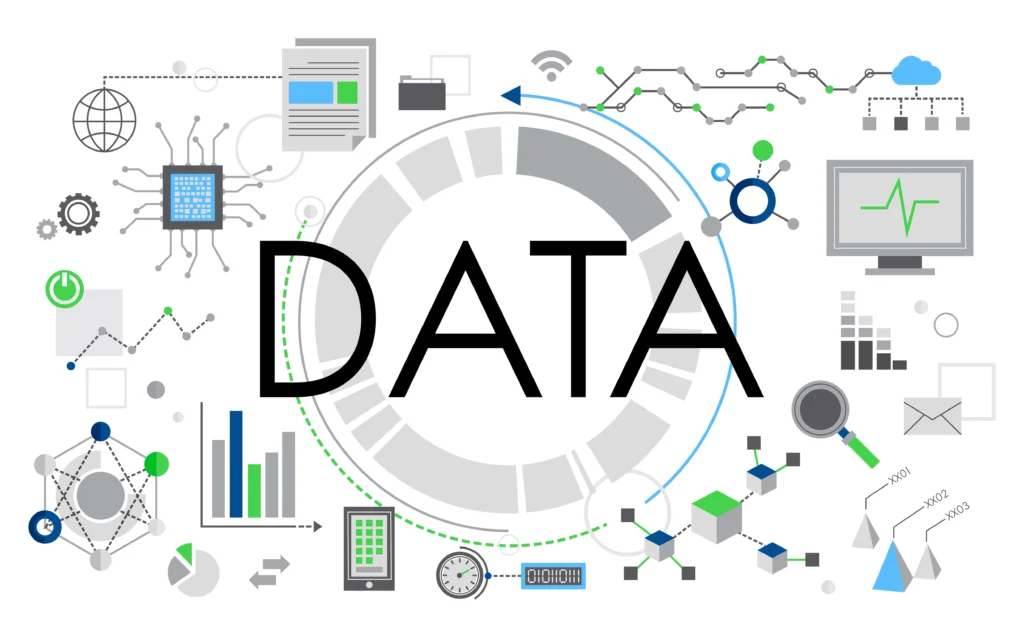
Now let’s explore some of the industry standard essential skills and tools for data scientists. Since it is a broad subject, let me give you a brief overview of the techniques involved.
- Deep learning frameworks – TensorFlow and PyTorch
These tools provide flexibility, scalability, and strong community support, making it easier for developers to build and deploy complex neural networks.
- Data visualisation tools – Tableau and PowerBI
Tableau and Power BI are popular data visualisation tools that help users create interactive and visually appealing dashboards, making it easier to understand and share insights from data.
- Cloud platforms – Amazon Web Services (AWS), Microsoft Azure, and Google Cloud Platform (GCP),
- Amazon Web Services (AWS), Microsoft Azure, and Google Cloud Platform (GCP) provide essential cloud services that enable businesses to scale and innovate efficiently.
- Version Control with Git,It helps developers track code changes, collaborate effectively, and manage project history seamlessly.
- Jupyter Notebooks for Interactive Computing,
Jupyter Notebooks allow users to interactively combine code, visualisations, and text for data analysis.
Now that you have an idea of what to build as an upcoming professional, let’s look at some brief information.
Data Manipulation and Management
This is where raw data needs to be transformed into an analytical aspect. This is one of the essential skills and tools for data scientists. Let’s see.
1. Feature engineering techniques extract meaningful information from raw data and reveal hidden patterns.
2. Data cleaning and preprocessing ensure accurate analysis by removing unnecessary data and organising relevant information.
3. SQL allows users to query data effectively, extract specific subsets, summarise large datasets, and optimise performance.
Building essential skills and tools for data scientists is key to maintain your position in the ever-changing and evolving industry, which is in great demand. Always remember that updating your skills has just begun, so your studies should continue. If you want to become a data science professional with strong community support, check out what we offer for your future! For freshers or those switching careers, building a portfolio of projects is essential. Join us to gain hands-on experience in data science, connect with industry experts, and showcase your skills through real-world projects that will set you apart in the job market. Take the first step towards your data science career today!

Maneesha M
Maneesha M. is an experienced Data Analyst and Senior Mentor with over 4+ years of teaching experience in Data Science and related fields. Specialising in transforming raw data into actionable insights, her expertise includes data analysis, visualisation, and statistical analysis, helping to make complex datasets accessible and understandable.
